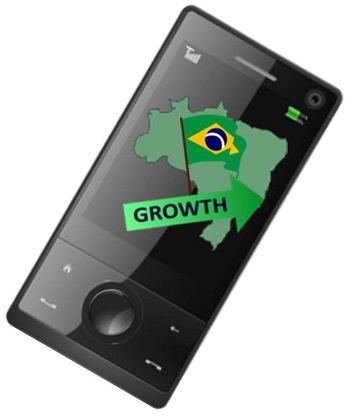Consumers who use their smartphones for researching products and making purchases shop differently.
Consumers who regularly participate in mobile shopping have a tendency to prefer products with which they have already become familiar and that they purchase on a regular basis, according to American research.
The study was conducted by a team of researchers from the Kellogg School of Management at Northwestern University.
The research also determined that mobile shopping is considered to be a solid way for boosting consumer loyalty – also referred to as “stickiness” – among customers, especially when it comes to people who are purchasing in small volumes. The study discovered that this is because m-commerce encourages customers to purchase on a more frequent basis and to boost the size of the orders they place. The study was held by marketing PhD candidate Jen-Hui Wang from the Kellogg School, as well as marketing professor from the same school, Lakshman Krishnamurthi, as well as Edward Malthouse from the Medill School of Journalism at Northwestern.
This research was conducted by analyzing online and mobile shopping data from 13 American locations.
 More specifically, the data analyzed was from an online grocery retailer that operates within these 13 U.S. locations. The data was broken down into two separate periods. The first was from June 2012 through October 2012. During that time , an ad campaign was launched by the grocery retailer for its mobile app. The time span was from November 2012 through June 2013.
More specifically, the data analyzed was from an online grocery retailer that operates within these 13 U.S. locations. The data was broken down into two separate periods. The first was from June 2012 through October 2012. During that time , an ad campaign was launched by the grocery retailer for its mobile app. The time span was from November 2012 through June 2013.
What was determined was that PC users during the first data set displayed different behaviors than those in the second period of time who had started using the mobile app. The shoppers whose total spending was smaller than the average value within the first span of time boosted their average order size when they started buying over mobile commerce than they had when they were buying over e-commerce.
On the side of consumers who spent more than the average, their size orders didn’t seem to change from e-commerce to mobile shopping. However, when they started buying over mobile apps, they started to make their orders more frequently than they had on their PCs.
Using smartphones for purchasing a range of different kinds of items has become very popular in Brazil.
A recent study conducted on the mobile commerce market in Brazil has shown that shopping over smartphones is becoming increasingly popular within the country, particularly among young consumers who are shopping for the first time.
The research indicated that throughout 2015, there was an increase of 47 percent in m-commerce shoppers.
This is a dramatic rise in the number of people who are turning to mobile commerce in order to buy the products and services they want. The firm behind the study, E-bit, determined that shopping over smartphones made up a considerable 14.3 percent of the country’s online trading in 2015. When compared to the same figure from the year before, when it was 9.7 percent, that represents a very meaningful rise in this trend.
The research also indicates that 22 percent of online shoppers in Brazil have used mobile commerce.
 That said, the same research has also underscored the fact that 88 percent of online shoppers still prefer to buy products and services over their desktop and laptop computers. While they might use their mobile devices for researching products and doing price comparisons, the final purchase still tends to be made over traditional computers the majority of the time. This indicates that consumers prefer to use multiple devices to complete the entire shopping journey from the point that they decide they want something and start to look into it, to the point that they actually pay for the items in their digital shopping carts.
That said, the same research has also underscored the fact that 88 percent of online shoppers still prefer to buy products and services over their desktop and laptop computers. While they might use their mobile devices for researching products and doing price comparisons, the final purchase still tends to be made over traditional computers the majority of the time. This indicates that consumers prefer to use multiple devices to complete the entire shopping journey from the point that they decide they want something and start to look into it, to the point that they actually pay for the items in their digital shopping carts.
In 2015, e-commerce in the Brazilian market generated $10.9 billion in sales, which was an increase over 2014 by 15.3 percent. This shows that there has been a significant trend leaning toward purchasing products and services on digital devices such as smartphones, tablets and computers.
That said, the news when it comes to online shopping and mobile commerce isn’t all positive. Recent research also published by E-bit but that was produced by a separate study has shown that they predict the lowest growth rates in online shopping in 15 years as a result of the current economic situation being experienced in the country. Brazil is in a recession at the moment and consumers have been cutting back on their spending as a result of this condition.
 More specifically, the data analyzed was from an online grocery retailer that operates within these 13 U.S. locations. The data was broken down into two separate periods. The first was from June 2012 through October 2012. During that time , an ad campaign was launched by the grocery retailer for its mobile app. The time span was from November 2012 through June 2013.
More specifically, the data analyzed was from an online grocery retailer that operates within these 13 U.S. locations. The data was broken down into two separate periods. The first was from June 2012 through October 2012. During that time , an ad campaign was launched by the grocery retailer for its mobile app. The time span was from November 2012 through June 2013.
 That said, the same research has also underscored the fact that 88 percent of
That said, the same research has also underscored the fact that 88 percent of 